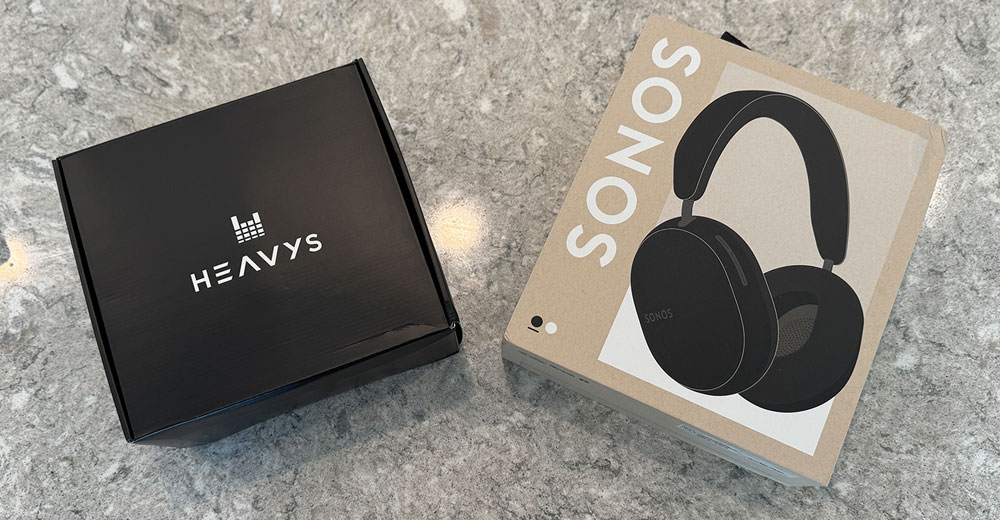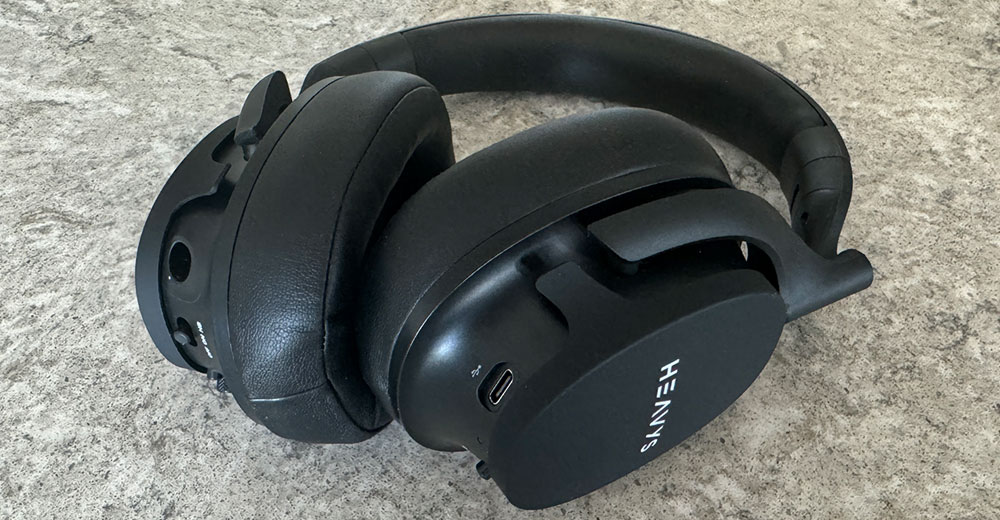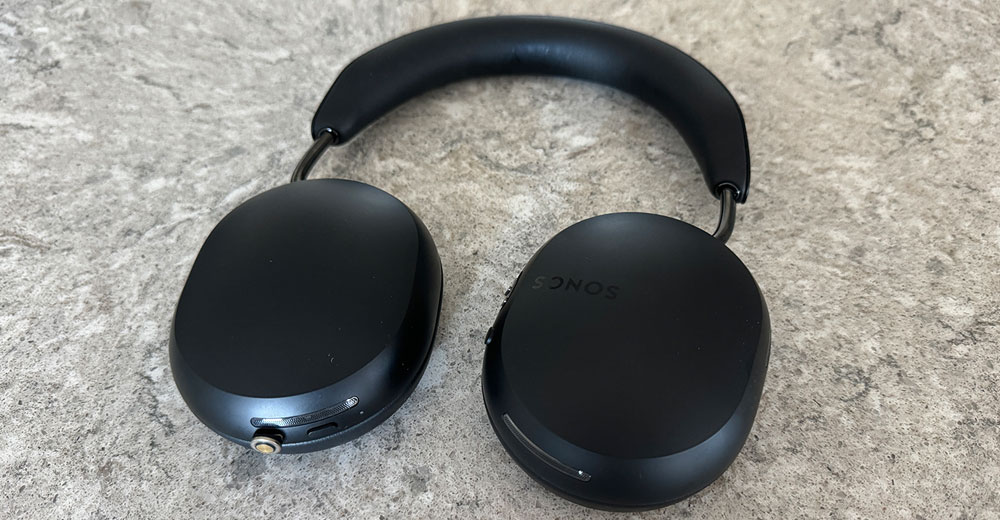Compelling New Headphones From Heavys and Sonos

I recently had the opportunity to explore two new headphones from Sonos and Heavys. Both showcase distinct features and sound profiles that cater to different listening preferences.
The Sonos headphones impress with their seamless integration into the brand’s ecosystem. They deliver a rich, immersive audio experience with exceptional build quality.
On the other hand, Heavys headphones stand out for their innovative design and powerful, bass-forward sound, making them a compelling choice for audiophiles seeking an intense auditory experience.
Both models offer unique advantages, reflecting the evolving landscape of premium headphone offerings.
Who Is Heavys?
Heavys headphones, designed to maximize music enjoyment for metal enthusiasts, made headlines a few years ago. In early 2022, a Kickstarter campaign initiated by former Sennheiser audio expert Axel Grell launched the Heavys, targeted at heavy metal music lovers.

Heavys headphones (Photo by Author)
I’m not and will never be a fan of heavy metal. My interest in the Heavys is to see how they would perform with more mainstream pop music devotees like me.
For clarity, the Heavys were tested on my iPhone 15 Pro Max using Apple Music in lossless and hi-res lossless versions.
The Heavys are slightly heavier than other over-the-ear headphones due to heavy-duty material and a matte black finish. The brand’s emblem is stenciled in white on both earcups and embossed on the headband.
Despite their heft, the Heavys have plush ear cushions that make them comfy and tight on the head.
Aggressive Design Yet Easy To Use
The control switches on the underside of both ear cups are solid and snap when used, but I found them more accessible to manipulate before putting on the headphones. The right ear cup’s ridged volume slider works well on the move.
A molded carry case and foldable Heavys make travel easy, a key factor as the Apple AirPods Max (my preferred at-home headphone) is simply too large to travel with. The AirPods Max ear cups don’t swivel, so wearing them around your neck can be awkward.
Heavys uses eight drivers to deliver songs directly to your ears, creating an optimal sound experience for all music genres. The headphones also contain five mics, which are critical feature attributes for smartphone conversations.
I liked using the amusingly labeled Hell Blocker Active Noise Cancelling when walking on busy main roads during my morning runs. Heavys supports Bluetooth 5.1 BLE and USB-C/analog, and a full charge lasted near its advertised 50-hour battery life spec.
Sadly, unlike most other headphones, the Heavys lacks a dedicated app for EQ, firmware upgrades, and other features. Heavys says a standalone app is under development and should be released by the end of the year.
Heavys Delivers Superior Sound Quality
Designed for metal music lovers, sound quality is a paramount feature. As mentioned, I tried the Heavys using an iPhone with Apple Music in lossless and hi-res lossless modes.
The out-of-the-box experience was somewhat muffled and too bass-heavy for my tastes, so I had to alter the EQ settings, which quickly enhanced the sound to my liking.
When turning on, off, activating Hell Blocker ANC, or pairing, a deep, rumbling voice strongly reminded me of the Duke Nukem character in “Mortal Kombat.” It’s clear that the Heavys design team has a sense of humor.
My musical genre test suite included Frank Sinatra, Barbara Streisand, and Tony Bennett standards and musical shows like “Man of La Mancha,” “Wicked,” “Promises, Promises,” “Camelot,” “1776,” and “They’re Playing Our Song.”
I found the audio experience quite immersive, with clear, balanced sound. The famous overture from “Man of La Mancha” was so clear that I could hear the separation of instruments in each ear cup, which is precisely how it was musically arranged in 1965.
The Verdict on Heavys Headphones
Though Heavys is new to the market, at $269, it represents a compelling value compared to more expensive alternatives like Apple’s AirPods Max.
The Heavys also excel from a design standpoint. I am disappointed that it currently lacks a smartphone app for firmware updates, which will undoubtedly optimize the sound in the future and provide an easier way to customize the audio experience. Putting those caveats aside, the Heavys are a welcome addition to the crowded over-the-ear headphone market — even if you’re not a heavy metal music fan.
Currently, Heavys can only be purchased directly from the company’s website.
Sonos Ace Arrives on the Scene
After years of anticipation, Sonos’ debut headphones have finally launched.
These new headphones from the acclaimed wireless home theater system manufacturer incorporate many Sonos hallmarks, including elite craftsmanship, remarkable sound quality, and seamless connectivity with the brand’s latest soundbars.

Sonos Ace headphones (Photo by Author)
Upscale features such as active noise cancellation, high-end audio support, and spatial audio with Dolby Atmos add to their flair and help justify their steep price tag of $449.
These headphones sound as beautiful as they look. The Ace does have a few functional blemishes I’ll point out, though Sonos may resolve these issues over time.
Particularly if you’re a proud member of the Sonos ecosystem, as I am, you’ll find the Ace to be a worthy pickup. Let me elaborate.
Impeccable Sound
The Sonos Ace offers audio quality rivaled only by the Apple AirPods Max. These headphones, by default, offer Sonos’ signature sound. It’s detailed, nicely balanced and vibrant. Midrange reproduction ranks among the best in the category. The bass is deep, and the highs are rich.
The bright electric guitar and infectious Burt Bachrach synths from the overture of “Promises, Promises” sounded as compelling as they did on a live Broadway production I saw in 2010. Vocal clarity was equally satisfying and had me privately belting the passionate title song.
Active noise cancellation (ANC) significantly boosts the bass; turning it off does the opposite. The Sonos app has an EQ to customize the sound. The loudness setting helps make the bass and treble more effective at low volume.
High-end audio codes like AAC (Apple iOS/macOS) and SBC (Google Android) run smoothly and produce stable playback on the best music streaming services.
Qualcomm’s aptX Adaptive/Lossless does a fantastic job of dynamically scaling Bluetooth audio to divulge more nuance in recordings. Tidal tracks offer unbeatable performance, and the platform’s desktop features help enhance output when in wired mode.
The included auxiliary and USB-C cables get you lossless audio on compatible devices. I was thrilled with the results, granted the midrange was overemphasized on several tracks.
Sonos’ 3D sound format is superb and supports dynamic head-tracking to create an encapsulating virtual soundscape. The spatial audio content on Apple Music and Apple TV sounded natural and immersive, and motion detection was accurate.
Sonos developed two exclusive features for the Ace. The first is TV Audio Swap, which switches audio between a Sonos soundbar and the Ace headphones. Then there’s TrueCinema, which uses a Sonos soundbar to map out your space and optimize the Ace’s acoustics for your room.
Sleek and Stylish Design
Sonos speakers are some of the swankiest home products and double as fancy décor. The Ace is no different. Placing them on a headphone stand in your living room will earn you coolness points. Their clean and minimalist appearance is on brand. Refined materials like the dark aluminum yokes and plush leather padding on the headband and earpads make for a comfy, well-fitting design. The sleek matte finish and slim microphone grilles are nice touches, too.
Sonos showed some creativity with its control setup. On the right earcup is a content key that provides a springy, tactile feedback experience every time you move the slider up or down to control volume and a satisfying click when you press it to pause or play. There’s also a button to enable ANC/voice control and a button for power/pairing.
The slim carry case is handsomely crafted. Sonos says it’s built from 75% recycled plastic bottles, but the felt material on the outside feels premium. The headphones sit nicely in their groove, and the separate felt pocket conveniently stores all accessories without taking up extra space. These headphones will be a pleasure to travel with during my next business trip.
Intuitive Ecosystem Integration
Sonos’ obvious intention is for the Ace to work seamlessly with your other Sonos products. Thanks to features like TV Audio Swap and TrueCinema, the Sonos ecosystem allows the Ace to work with your Sonos home theater. Although, if you don’t own a Sonos speaker, these benefits will not appeal to you.
Regardless, TV Audio Swap worked well for me while watching blockbuster films and sports events alone, especially after other family members retired for the night. Sound quality isn’t compromised, and it is undoubtedly much more convenient than manually pairing and re-pairing things once it’s time to put headphones on.
TrueCinema is Ace’s killer feature. It creates a personal 3D sound profile for the headphones by having your Sonos bar map your listening environment. It sounds promising and could be a huge selling point when it’s finally released in the coming weeks.
The Sonos Arc is the only device to support these two features, but a future software update is said to bring them to the Beam (Gen 2), Beam, and Ray.
Outside the Sonos platform, the Ace works well with iOS/macOS and Android devices. Apple MFi and one-tap Google Fast Pair deliver instantaneous pairing no matter what phone you have. Multipoint technology is also onboard to pair the headphones with two audio sources simultaneously.
However, it’s worth noting that the Ace is not Wi-Fi compatible and doesn’t need to be set up through the Sonos app. Granted, the latter does help when troubleshooting and places a few features at your fingertips.
Adequate Noise Cancellation, Call Quality
In my experience, the Ace has exquisite noise cancellation, though it’s not quite as good as the Apple AirPods Max or Bose QC Ultra. However, these noise-canceling headphones did block out a vast amount of incidental sound.
I found the technology helpful in silencing common household distractions such as kitchen appliances, TVs, and outdoor disturbances. Loud noises, such as construction tools and sirens, caught my attention.
Strong wind resistance kept the soundstage free of harsh whooshing effects. Aware mode was decent for monitoring my environment, but the mics struggled with vocal capture. With future firmware updates, I expect the Ace noise cancellation to become as good as competitive headphones.
Battery Life Lower Than Advertised
Sonos rates the Ace’s battery life at 30 hours with ANC on. My tested battery life was closer to 25 hours, outpacing the long-in-the-tooth Apple AirPods Max. There was a three-hour drop when using ANC. Spatial audio brought playtime down to about 20 hours.
However, I’m glad to report that Sonos offers some of the strongest quick charging in the category. A three-minute charge provides three hours of use, something you’ll value when traveling.
Buggy Companion App
Sadly, the Sonos app occasionally froze or didn’t acknowledge the headphones being paired to my smartphone. When recognized, the app provided access to several perks: a battery level indicator, EQ, and toggle controls for all the main functions.
Moreover, the EQ is pedestrian and limits adjustments to bass, treble, and balance output between channels. Like every other competitor, Sonos should have developed multiple EQs.
I also encountered an issue where a software update meant to be a 10-minute download took about 30 minutes to complete, presumably because it was the product’s first major software upgrade post-launch.
Ace Better With Other Sonos Speakers
The biggest challenge that most consumers will face is that the Ace’s coolest sound features are tied to the Sonos platform, and they only work with the Sonos soundbar at the moment: the Arc.
These perks will eventually be available on the Beam and Ray soundbars, but if you don’t currently have a Sonos soundbar, the Ace will simply be less functional.
Premium Price
It would have been in Sonos’ best interest to launch the $449 Ace at a more competitive price point. These headphones are more expensive than the $399 Bose QC Ultra, probably the best noise-canceling that is frequently on sale.
The Ace does have a lower retail price than Apple’s $549 AirPods Max, but those headphones also see frequent discounts to as low as $429. If Sonos priced Ace in the $399 range, discounted pricing would make it a no-brainer.
Bottom Line
Admittedly, I’m a Sonos guy, and I appreciate the value these headphones provide. I’ve invested heavily in the company’s smart wireless audio ecosystem for years. The sound quality is undeniably excellent, and active noise cancellation is impressive.
As a Sonos fan, these headphones are a game-changer for me because they’ll be easy to travel with, something I can’t do with the Apple AirPods Max due to its bulk.
Integration into the Sonos ecosystem will improve, and I value that. If you’re not a Sonos user, there are less expensive alternatives. But for me, the Ace is stunning in design, sound, and integration, and Sonos’ first foray into the headphones space is a solid and noteworthy achievement.
The Sonos Ace headphones are available directly from Sonos, Amazon, and major electronic retailers like Best Buy.
Source: https://www.technewsworld.com







